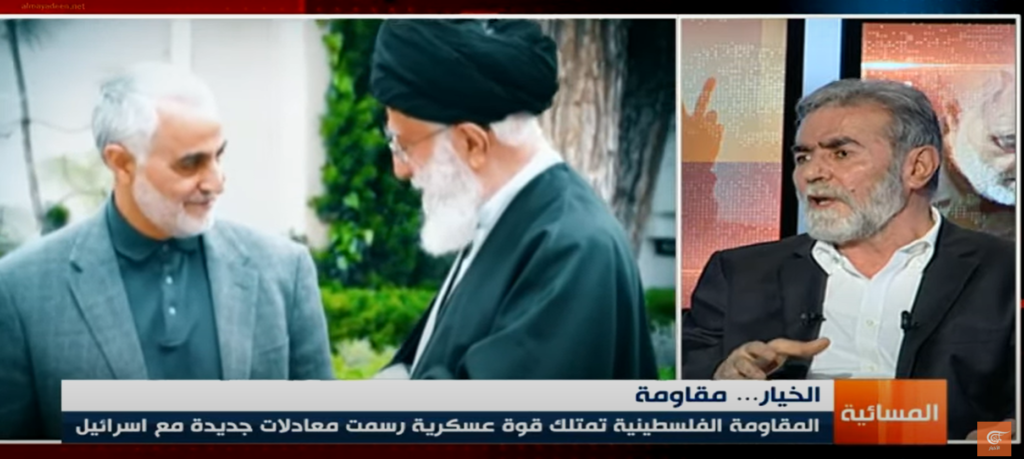This week, Prime Minister Netanyahu and Defense Minister Yoav Galant implicated Iran in a substantial role within the Palestinian terrorist activities against Israel.
Iran is alleged to be the driving force behind Hamas and Islamic Jihad’s engagement in terrorist acts across Judea and Samaria.
This includes funding, imparting instructions, and smuggling weapons through the Jordanian border.
Recent terrorist attacks have been attributed to Hamas, prompting the political echelon to strategize the most fitting retribution.
In the interim, Hamas enjoys a relative state of tranquility and humanitarian support within the Gaza Strip.
During this week’s Security Cabinet meeting, the Prime Minister and ministers engaged in creative discussions concerning approaches to combatting terrorist organizations in Judea and Samaria.
Since the year’s commencement, Israel has incurred a heavy toll with 35 fatalities resulting from terrorist assaults.
The political leadership is presently exploring strategies to deter these terrorist groups.
The Intelligence Division within the IDF’s General Staff alerted Prime Minister Netanyahu several weeks ago to the waning Israeli deterrence, exacerbated by internal conflicts sparked by the judicial reform debate.
Capitalizing on this erosion, Iran and its affiliates—Hezbollah, Hamas, and Islamic Jihad—are intensifying provocations and attacks against Israel.
According to political sources in Jerusalem, the Defense Cabinet has empowered the Prime Minister and Defense Minister to undertake necessary anti-terrorism measures.
Security sources indicate that Israel is not actively seeking military confrontation with Iran or Hezbollah, but is poised to extract reprisals from the leaders of these terrorist organizations residing abroad.
Effectively, Israel’s intelligence agencies, led by the Mossad, have been given the green light to renew their practice of assassinating Hamas and Islamic Jihad leaders overseas.
In March of this year, according to foreign sources, the Israeli Mossad assassinated senior Islamic Jihad figure Ali Ramzi Al-Aswad, known as “The Engineer,” in Damascus, thwarting a series of attacks planned for Ramadan.
Israel has never officially acknowledged responsibility for the operation, but it seems the country is once again gearing up to act discreetly against the leaders of Hamas and Islamic Jihad overseas, leaving behind minimal traces.
This action aims to convey a message to the terrorist organization leadership, which is expected to grasp the broader context of these eliminations.
Security sources point out three key figures responsible for orchestrating terror in Judea and Samaria:
- Saleh Al-Arouri: The head of Hamas’ military wing in the region and the intermediary for Iran and Hezbollah. He is based in the A-Dahiya neighborhood in Beirut, Lebanon, close to Hezbollah headquarters. Despite Israel’s diplomatic efforts to expel him from Lebanon, cooperation with Britain yielded no results. The United States designated Al-Arouri as a terrorist operative in November 2018 and offered a $5 million reward for information on his whereabouts. Eliminating Al-Arouri could severely disrupt coordination between Iran and Hamas and impede weapons transfers to Judea and Samaria. It would also enhance security levels in the region. Al-Arouri, a founding member of Hamas’ military wing, oversees the group’s terrorist activities in the West Bank via the Hamas office in Istanbul.
- Ziad Al-Nakhala: The Secretary General of the Islamic Jihad Organization. He established armed terrorist units in northern Samaria over the past two years, collaborating closely with General Hossein Salami of the Iranian Revolutionary Guards and General Ismail Ka’ani, commander of the Quds Force. Al-Nakhala operates from his office in Beirut’s AL-Dahiha neighborhood.
- Akram Al-Ajouri: The head of Islamic Jihad’s military arm, “Saraya Al-Quds.” His office is situated in the AL-Dahiya neighborhood in Beirut. Al-Ajouri supervises all terrorist activities of his organization’s armed groups in northern Samaria and oversees weapons smuggling from Jordan. He narrowly survived an Israeli assassination attempt in Damascus in November 2019. Al-Ajouri maintains military connections with senior Iranian regime officials and Hezbollah. He holds significant influence within the organization and the Gaza Strip.
In accordance with senior security officials, the decision has been made at the political level, with the execution entrusted to the appropriate bodies.
The targeted overseas assassinations are planned to occur discreetly in unexpected locations, with the intention of bolstering Israeli deterrence.




